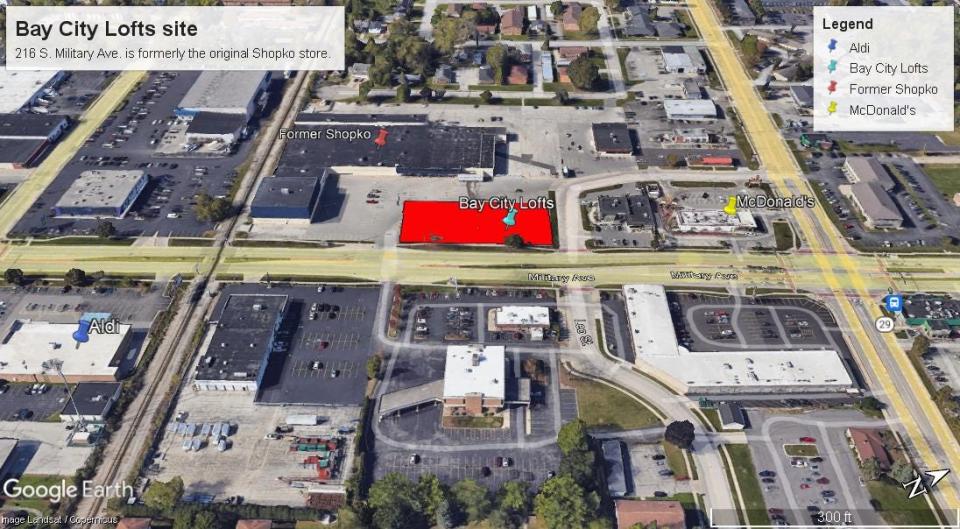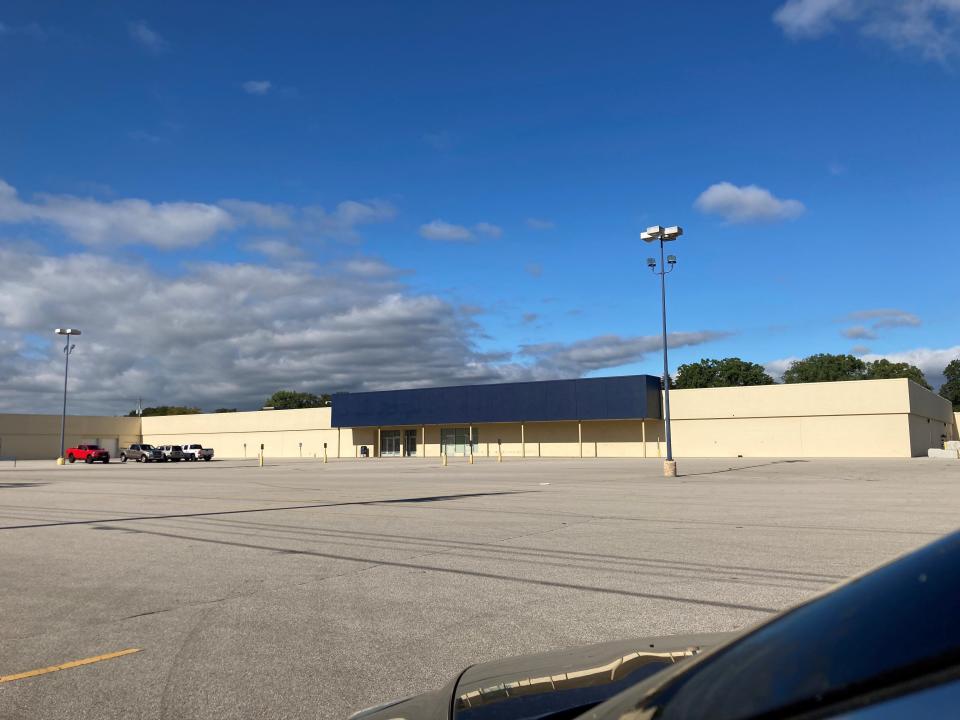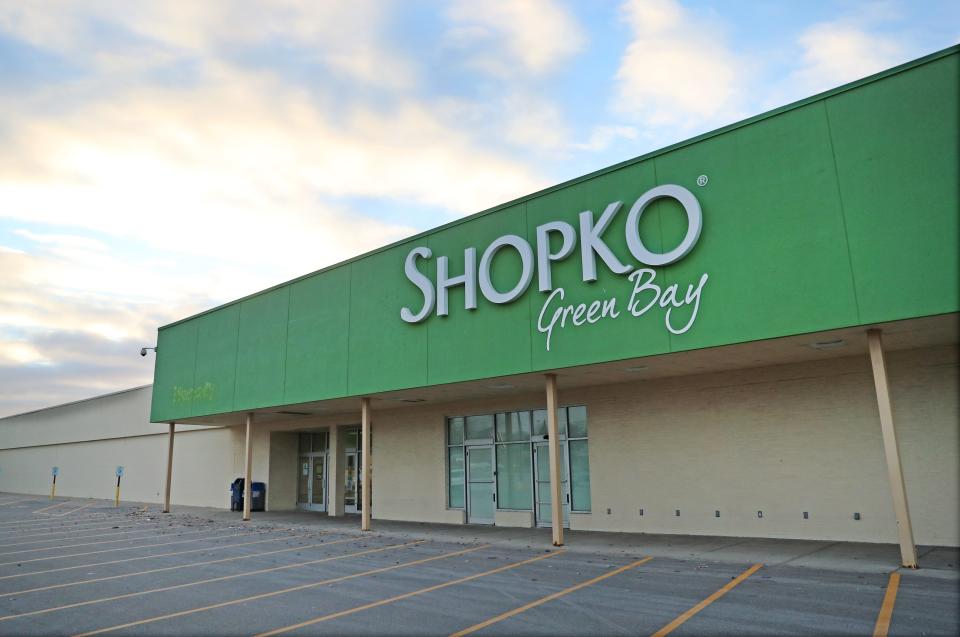Permanent industrial use upends affordable, accessible housing plan for Green Bay Shopko
GREEN BAY - A city official sees no path forward for a Madison developer’s plan to build affordable, accessible housing in the Military Avenue Shopko parking lot.
Gorman & Company in November proposed Bay City Lofts, a four-story, 48-unit building on a 1.1-acre piece of the parking lot at 216 S. Military Ave.
Bay City Lofts was not a stand-alone development, though. It could only move forward if the city approved turning H.J. Martin and Son’s current temporary industrial uses of the site into permanent uses, in conflict with the site’s commercial surroundings.
The Green Bay City Council on Tuesday cited the permanent industrial use and neighborhood concerns before voting 9-3 to deny the special zoning request, called a planned unit development.
Neil Stechschulte, the city’s economic development director, said the council vote and apparent disagreements between Gorman and H.J. Martin and Son owner Edward Martin make it unlikely the project will be resubmitted.
“At least in its current state as proposed, there is no project at this point to move forward,” Stechschulte said. “There’s a possibility both parties could come back and present something to the city. But we have no indication that’s going to happen right now.”
Here's what happened, what we don't know and what's next.
Bay City Lofts included accessible housing for people with disabilities
The project would have created 40 apartments specifically for households that earn less than $42,000 per year, 60% of Brown County’s median income, with some units affordable for households that earn poverty-level wages. Eight units would have been available to anyone at market rate rents.
Additionally, 27 of the 48 units would have included accessibility amenities for people with disabilities, a huge need in the Green Bay area, said Sandy Popp, assistant director at Options for Independent Living. Established in 1980, Options supports and empowers residents with disabilities in a 17-county area, providing them with education, support, and equipment needed to live independently.
People with disabilities need housing with features such as 36-inch hallways, reinforced walls to support grab bars, lower light switches, higher electricity outlets, and accessible showers. These are amenities that can help everyone age in place, but for people with disabilities, they are vital, Popp said.
“I’ve seen so many fall by the wayside due to a lack of accessible housing or renting a unit that’s not accessible,” Popp said. “People who aren’t disabled can just rent any apartment. Every single (apartment building with accessible units) has a wait list.”

How did housing get tied up with industrial uses of the site?
Martin and Gorman & Co.’s land purchase agreement for the Bay City Lofts site made the land sale contingent on the City Council giving the Martins permanent industrial use of the Shopko building.
H.J. Martin has been using the site for light industrial purposes for 18 months now since it requested the city's permission to do so in fall 2021. H.J. Martin asked to use the building to warehouse inventory, train its employees and for Bellin Health to refurbish medical devices while the Martins worked on a long-term redevelopment plan for the site.
These industrial uses are not allowed on a commercially-zoned site like the Shopko property and city planners did not want temporary industrial uses to become permanent. The parties compromised in fall 2021: The city would allow industrial use of the building for up to 5 years if Martin agreed to come up with a redevelopment plan focused on commercial, retail or residential uses by 2024.
Gorman’s affordable housing development would have fulfilled the requirement Martin submit a plan by 2024.
When the requirement for permanent industrial zoning arose, city planners presented the request to city boards with limits on the type of light industrial uses the site could host — limited production, enclosed contractor yard, package delivery services are a few examples.
The Green Bay Plan Commission rejected the request in January but reconsidered the request on Feb. 27 and approved it, setting up the council vote.

Permanent industrial use a 'deal breaker'
City Council members weighed the need for affordable housing, Military Avenue business owners’ concerns about low-income housing, the long-term impacts of permanent industrial use on the site, and Martin’s statements Tuesday night as they voted.
Martin’s public comments during the meeting ranged from support for the permanent industrial use and affordable housing developments to raising concerns that he could sell the property to someone who might put up a “warehouse or whatever monstrosity” on the site.
In response to council members’ questions, Martin said he felt there were better uses for the site than industrial, that he’d be happy as a business owner to have industrial use of the property, and that his goal was to make sure council had no misconceptions about the impact of the compromise before them.
“I’m for the project. It gives me the right to do any industrial thing I want,” Martin said.
Several council members said the terms of the proposal, the discussion, community input, and how the proposal reached this point left them confused.
“What’s utterly confusing to me is the words of the property owner are defeating this,” Alderperson Jim Hutchison, a supporter of the housing development, said. “This makes no sense to me.”
Several understood the need for affordable housing, but not in exchange for a permanent industrial use.
“The warehouse piece is a deal breaker for me and a lot of people,” said Alderperson Melinda Eck, whose district includes the Shopko property. “I wish something else could be worked out here.”

What don’t we know?
Ted Matkom, Wisconsin market president and general counsel for Gorman & Company, did not respond Wednesday and Thursday to the Press-Gazette's request for an interview.
It is Gorman’s housing project that has the tax credits, but it’s unclear if the company can relocate Bay City Lofts to a different site and if the company could retain the tax credits if it did so. It's also not clear whether it wants to try again.
This was the Madison-based company’s second attempt to build affordable housing in Green Bay. The first, a mixed use project between downtown and Whitney Park, didn’t receive the tax credits and plans transitioned to market-rate apartments instead.
Stechschulte said he’d like to see if the city can find Gorman a different site for Bay City Lofts
“We definitely need this housing,” Stechschulte said. “As always, the door is open, but otherwise we’re back to the status quo.”
What is the 'status quo' for the Shopko site now?
Stechschulte said the entire Shopko site reverts back to the terms the city and H.J. Martin agreed to in fall 2021.
H.J. Martin and Bellin Health can use the Shopko building for light industrial purposes into 2024 with options to extend the uses until 2026.
Martin will have to submit a plan for how he will redevelop the Shopko site by the end of 2024.
“I think staff would say there needs to still be a concept plan requirement met for that site,” Stechschulte said.
Contact Jeff Bollier at (920) 431-8387 or jbollier@gannett.com. Follow him on Twitter at @JeffBollier.

CONTINUE YOUR SUPPORT: Thanks to our subscribers for making this coverage possible. Be sure to download our app on the App Store or Google Play. Follow us on social media: Facebook | Twitter | Instagram | Newsletters
This article originally appeared on Green Bay Press-Gazette: Why affordable housing not likely to happen in a Green Bay Shopko lot

